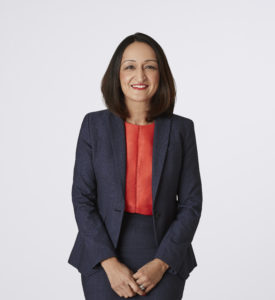In the second of a two-part series, Sumati Sharma, Aviation Partner at Oliver Wyman, talks about the importance of gender balance in the senior leadership team – and steps to achieve it.
In our last blog we looked at some of the progress made by the Women in Aviation and Aerospace Charter since its launch in 2018.
We also looked at the impact of the Covid-19 pandemic and advice to women starting out. This week, we look at how to attain better gender balance and representation for women in senior leadership.
The aviation and aerospace sectors are world-leading, and to sustain this industry we need to ensure we have access to a diverse range of innovators and leaders of the future. The Women in Aviation and Aerospace Charter (WIAAC) aims to support and showcase female role models to demonstrate that opportunities are available, regardless of gender. It supports the progression of women into senior roles in the aviation and aerospace sectors, and aspires to see gender balance at all levels across aviation and aerospace. The Charter’s signatories commit themselves to work together to build a more balanced and fair industry for women using data, targets and accountability to effect change. WIAAC signatories sign up to four principles around equality and accountability. These principles include having one member of the senior executive team responsible and accountable for gender diversity and inclusion and setting internal targets, where appropriate, for gender diversity in senior management.
The Charter’s Resource Hub, launched earlier this month to coincide with International Women’s Day, contains practical resources for organisations and individuals on securing top leadership talent or roles and then continuing their leadership development journey.
The free-to-access resources include links to various training programmes for individuals and organisations and contains a dedicated section Flying High as part of the Leadership Team.
The Charter recognises that a balanced workforce is good for business and customers, in terms of profitability, workplace culture, and is becoming increasingly attractive for investors. WIAAC signatories pledge their actions to help make this a reality.
“Unleashing the potential of the world’s greatest minds”
Sharma said: “We need to unleash the potential of the world’s greatest minds, irrespective of gender, race or background. I am excited to have joined the amazing team at Oliver Wyman as Aviation Partner in the London Office. I know with diversity of thinking across the industry, we can solve together new complex problems, whether it be sustainability, safety, and innovating across the customer journey.”
“I also look forward to being able to influence and support the next generation of leaders in the aviation sector driving change and taking our industry to the next level in the coming years,” she added.
The two “ingredients” to achieving a more balanced team
Sharma said there were two “ingredients” which could encourage more women to take up senior leadership roles:
1. Gaining sponsorship: as you look to manage your career, the importance of sponsorship is key. Find sponsors who can advocate, publicly sponsor and fight for you in settings where you cannot fight for yourself is key. We explore this in Oliver Wyman’s recent Women in Leadership report. Personally, I am really thankful to my sponsors, specifically three different male advocates who have helped me get to where I am.
2. Confidence: I read an article called the “Confidence Gap” five years ago that had a profound impact on me. It highlighted that there is a vast confidence gap that separates the sexes. Compared with men, women don’t consider themselves as ready for promotions, they predict they’ll do worse on tests, and they generally underestimate their abilities. A growing body of evidence shows just how devastating this lack of confidence can be. Success, it turns out, correlates just as closely with confidence as it does with competence. The good news is that with work, confidence can be acquired. It’s a journey I have really worked on personally over the years.”
“As you reach more senior levels, I have reflected and noticed that these two ‘ingredients’ can help qualified women and people from minority groups ensure they are not left on the sidelines,” she added.
To hear Sumati’s story, listen to her podcast for International Womens Day.

